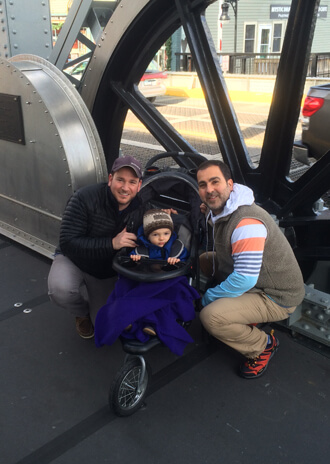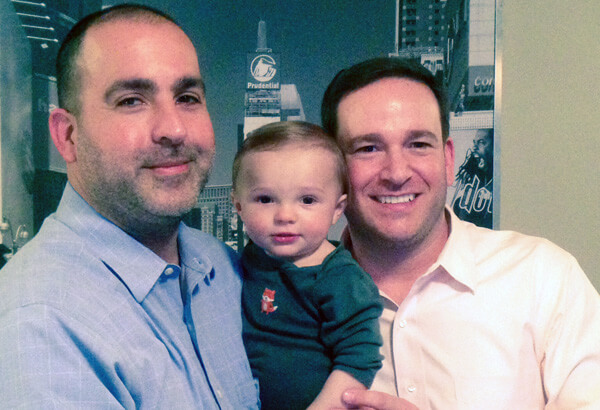The January 6 order from the US Supreme Court placing a stay on the December 20 federal district court judge’s Utah gay marriage ruling has created confusion for the roughly 1,300 couples who married during the two-week window while it was in effect.
The state’s Republican governor and his appointed attorney general find themselves in disagreement not only with the US Department of Justice, but also with Utah’s State Tax Commission, whose members are appointed by the governor.
On January 8, the office of Governor Gary R. Herbert sent Executive Branch cabinet members a memo stating that Utah state agencies would not recognize those same-sex marriages performed prior to the stay for the duration of the appeals process.
US Justice Department, State Tax Commission disagree with Republican governor
“With the district court injunction now stayed, the original laws governing marriage in Utah return to effect pending final resolution by the courts,” the memo, written by Herbert’s chief of staff, Derek Miller, read. “It is important to understand that those laws include not only a prohibition of performing same-sex marriages but also recognizing same-sex marriages [emphasis in the original memo].”
Any applications for state benefits made by married same-sex couples were put “on hold and will stay exactly in that position until a final court decision is issued,” according to the memo. Prior to the stay being imposed, Utah had begun opening up its state employee benefit program to couples in same-sex marriages.
The state later clarified that licenses for same-sex marriages performed prior to January 6 were still being processed and would be mailed out to couples waiting for them.
Miller’s memo on behalf of the governor cited “counsel from” State Attorney General Sean Reyes –– who only took office on December 30 after the resignation of his predecessor amidst federal and state probes into alleged improprieties –– and emphasized that Herbert’s “position is not intended to comment on the legal status of those same-sex marriages –– that is for the courts to decide.”
Two days after the governor made his position clear, US Attorney General Eric Holder said the federal government would recognize the validity of the 1,300 Utah marriages.
Noting that since the US Supreme Court ruling that struck down the Defense of Marriage Act (DOMA) last June the Justice Department “has been working tirelessly to implement it in both letter and spirit — moving to extend federal benefits to married same-sex couples as swiftly and smoothly as possible,” Holder said that as the appeals process plays out, “these marriages will be recognized as lawful and considered eligible for all relevant federal benefits on the same terms as other same-sex marriages. These families should not be asked to endure uncertainty regarding their status as the litigation unfolds. In the days ahead, we will continue to coordinate across the federal government to ensure the timely provision of every federal benefit to which Utah couples and couples throughout the country are entitled.” (Several marriage equality states including Massachusetts, Maryland, and Delaware, presumably in a show of respect for couples who married in Utah, announced they too would recognize the marriages.)
For most of the gay and lesbian couples who married in Utah in late December and early January, the most immediate implication of Holder’s announcement is that they are now required to file their federal tax returns using one of the married filing categories. When Herbert’s directive went out to his cabinet agencies, the state indicated that these same-couples could not file their state returns as married. On January 16, however, the State Tax Commission reversed that position, issuing a statement saying, “Same-sex couples who are eligible to file a joint federal income tax return and who elect to file jointly may also file a joint 2013 Utah Individual Income Tax return.”
That commission, which is independent but whose four members are gubernatorial appointees, has gone back and forth since last summer on state tax filings by same-sex married couples. After the Internal Revenue Service spelled out that all married same-sex couples will be treated as married for federal tax purposes, even if their home state does not recognize their marriage, Utah signaled it might allow gay and lesbian couples who married out of state to file their Utah returns as married. A few weeks later, however, the commission changed course.
Now, it has opened up married filing status to all same-sex couples in Utah who were legally married during 2013, whether married there or out of state.
As the confusing chain of events unfolded, Reyes scrambled to meet the expedited schedule for the state’s appeal set out by the 10th Circuit Court of Appeals. Written briefs were scheduled to be due by January 27, with replies required by the end of February, though Reyes’ office last week asked for a 10-day delay of the first of those deadlines.
Shortly before Reyes made his request, Gene Schaerr, a Washington-based attorney who had headed the appellate practice at Winston & Strawn, announced he was leaving the firm to become a Utah special assistant attorney general with responsibility for the marriage case.
One final development in the Utah marriage case was the January 21 announcement by the American Civil Liberties Union of Utah that it was filing a lawsuit in state court –– based on federal constitutional claims as well as claims under state law –– on behalf of same-sex couples who married in Utah during the two weeks they were able to. In last year’s DOMA ruling, the high court found that the federal government, under the 14th Amendment, could not treat some legal marriages differently than others. The ACLU case will test the question as to whether Utah has the right to do so.
Editor's Note: This story has been updated to reflect the fact that the January 21 lawsuit was filed by the ACLU of Utah, not the national ACLU, and is being litigated in state, not federal, court.


































